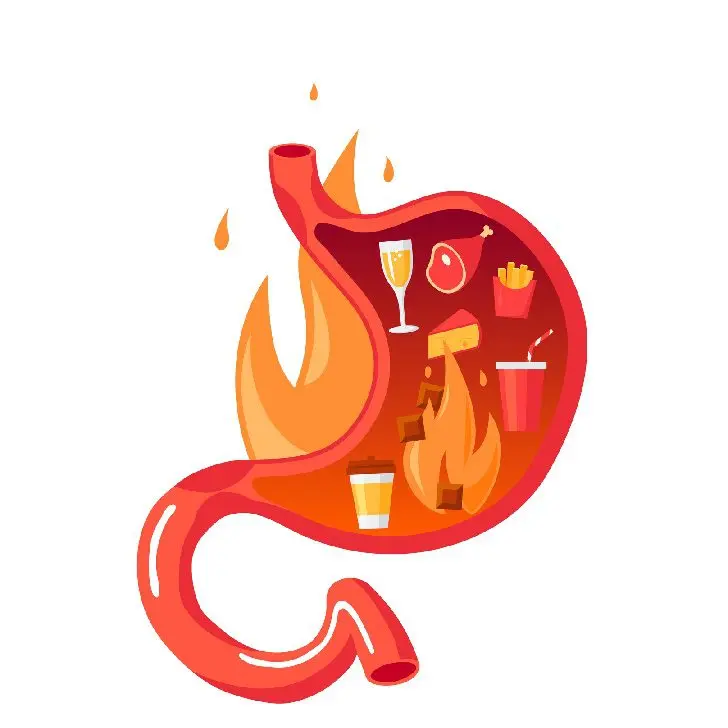Contents
Gastritis in our time is so common that some patients are quite frivolous about their condition and abuse alcohol contrary to all the recommendations of doctors. In their defense, such people usually say that alcohol allegedly has disinfectant properties, and therefore drinking alcohol with gastritis can even be useful. To understand whether they are right, it is necessary to understand what happens when alcohol enters the patient’s body.
The causative agent of gastritis is the bacterium Helicobacter pylori. This pathogenic microorganism causes inflammation of the mucous membrane of the stomach walls. There are several forms of gastritis, and they can manifest themselves in different ways. So, with acute gastritis, the patient suffers from heartburn and digestive disorders, experiences bouts of nausea and pain. In the chronic form of the disease, the symptoms may not be so pronounced, and in the remission stage, the patient feels almost healthy at all.
Alcohol with exacerbation of gastritis and ulcers
However, inflammation of the mucous membrane of the stomach wall does not disappear anywhere. Alcohol entering the stomach additionally burns the tissues. The extent of the burn depends on how much ethanol is in the alcohol. The negative impact of alcohol is softened by a properly selected snack. However, if the patient drinks a strong drink on an empty stomach during an exacerbation of gastritis, he will experience the same pain as from getting alcohol into an open wound.
But there is another reason why doctors categorically forbid drinking alcohol during an exacerbation of gastritis. During this period, patients are usually prescribed antibiotics. Drinking alcohol while taking these drugs can lead to very serious consequences, from vomiting or internal bleeding to a stroke.
Alcohol during remission of gastritis
If the patient strictly adheres to the recommendations of doctors and follows a diet, the disease goes into remission. But the absence of nausea and other symptoms does not mean that the patient has fully recovered and is allowed to drink alcohol.
Once in the body, alcohol stimulates the production of gastric juice. Because of this, the amount of hydrochloric acid, which irritates the mucous membrane, sharply increases in the stomach. Ethanol through the walls of the stomach is absorbed into the blood, the person gets drunk. The process, called resorption, takes several hours. But alcohol is excreted from the body within a few days, and all this time ethanol has a negative effect on digestion. The matter is aggravated by the fact that the drunk person violates the diet and begins to eat spicy or fatty foods that are heavy for the stomach.

Alcohol has the ability to dull the sensitivity, which is why the version was born that alcohol relieves the pain of gastritis. But after a couple of hours, an excessive dose of ethanol can lead to an exacerbation of the disease. And painkillers, as well as antibiotics, should not be taken in such cases.
What kind of alcohol is possible with gastritis
Of course, it is best not to drink alcohol with gastritis. But too many events in our lives are accompanied by feasts. Therefore, here are a few rules for drinking alcohol with gastritis:
1. With gastritis, you can drink only high-quality (respectively – expensive) alcohol. It is necessary to give up sparkling and fortified wines, canned and bottled beer, cocktails, energy drinks. These drinks greatly increase the acidity. Patients with gastritis are allowed to drink 50-100 g of good vodka or cognac no more than once a month, and preferably 100-200 g of dry red wine. The antioxidants contained in wine have a beneficial effect on the condition of the gastric mucosa.
2. Recently, the press often mentions that German scientists recommend unfiltered beer to patients with gastritis. It contains hops and malt, which cleanse the mucous membranes. But in the study we are talking only about live high-quality beer without preservatives. If the patient has a mini-brewery close to home that they can trust, great. Maximum allowable dose: one mug of live beer every 20-30 days.
3. Alcohol should not be consumed on an empty stomach. Beforehand, it is recommended to eat or drink something dairy (cottage cheese, unsalted cheese, fermented baked milk, yogurt, cream). You can also eat a hot hearty meal. Of the snacks, ham (without bacon), red caviar, boiled eggs with greens are best suited.
4. It must be remembered that alcohol in chronic gastritis, even during remission, is always an exception to the rule. For example, if a person knows that he begins to feel a slight intoxication after the second glass, then you should not drink the third.
5. If after the feast the patient becomes ill, in no case should you take conventional drugs: in combination with alcohol, they can cause poisoning. You need to see a doctor urgently.
Attention! Self-medication can be dangerous. Consult your doctor.









